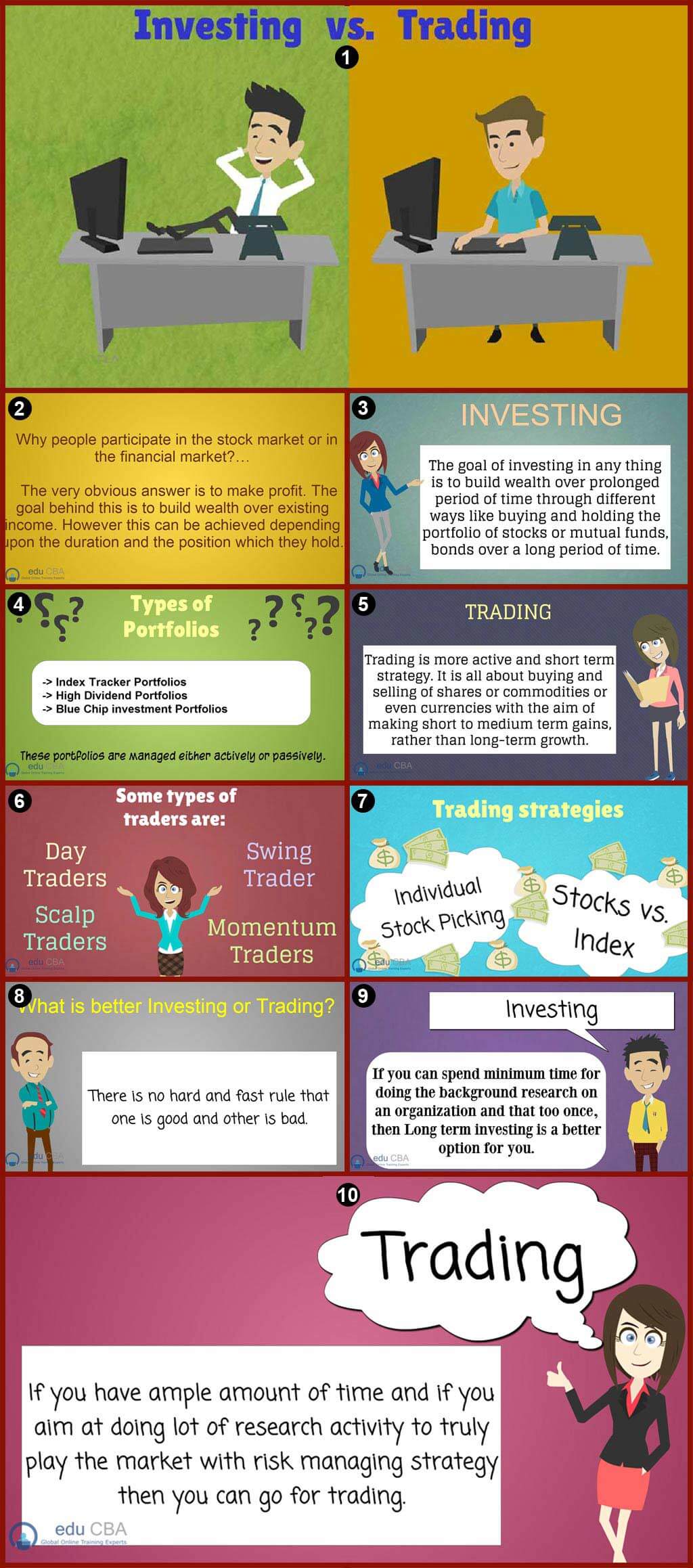
Overview
- Investing and trading are two a different way to profit from the market
- Investors and Traders both attempt to seek profit from the market
- Investors seek higher return buying and hold for a long period of time
- Traders seek even higher return by using various trading strategy to profit
Investing
- Build wealth slowly over an extended period of time by purchasing and maintaining a portfolio of stocks, share portfolios, mutual funds, bonds, and other investment resources.
- Investments are often held for years, or even decades, taking advantage of benefits along the way, such as interest, dividends, and share splits.
- Although markets naturally fluctuate, the investor will hold the stock when its share prices are declining, with the hope that stock prices will stabilize and any losses will eventually recover.
- Usually, investors are more concerned with market fundamentals such as price/earnings ratios and current ratio, etc
- Anyone with a CPF is investing even though they don't monitor their investments on a daily basis. Because the goal over the decades is to build a retirement account.
Trading
- Trading includes transactions that are more frequent such as buying and selling stocks etc. The goal is to achieve returns that surpass buy-and-hold investing
- Trading profits are created in a relatively short period of time by buying at a lower price and selling at a higher price.
- It is also possible to make trading profits by selling at a higher price and purchasing to cover at a lower price (known as "selling short" or "shorting") for profit in falling markets.
- Traders usually fall into one of four categories: Position Trader: Positions are held from months to years.
- Position Trader: Positions are held from months to years.
- Swing Trader: Positions are held from days to weeks.
- Day Trader: Positions are held throughout the day only with no overnight positions.
- Scalp Trader: Positions are held for seconds to minutes with no overnight positions.

Conclusion
- If investing is a is like homework, trading is like preparation for an exam
- There are plenty more factor to take note of such as low commission rate due to regular buying and selling of share as they add up quickly
- Working hours: if you are working the regular hour of 9-6, the US market may be suitable for you as it does not clash with your working hours, otherwise you would probably have to place your stock order whether buy or sell early in the day before you go to work
- As they always say, why not a mix of both investment and trading?
No comments:
Post a Comment